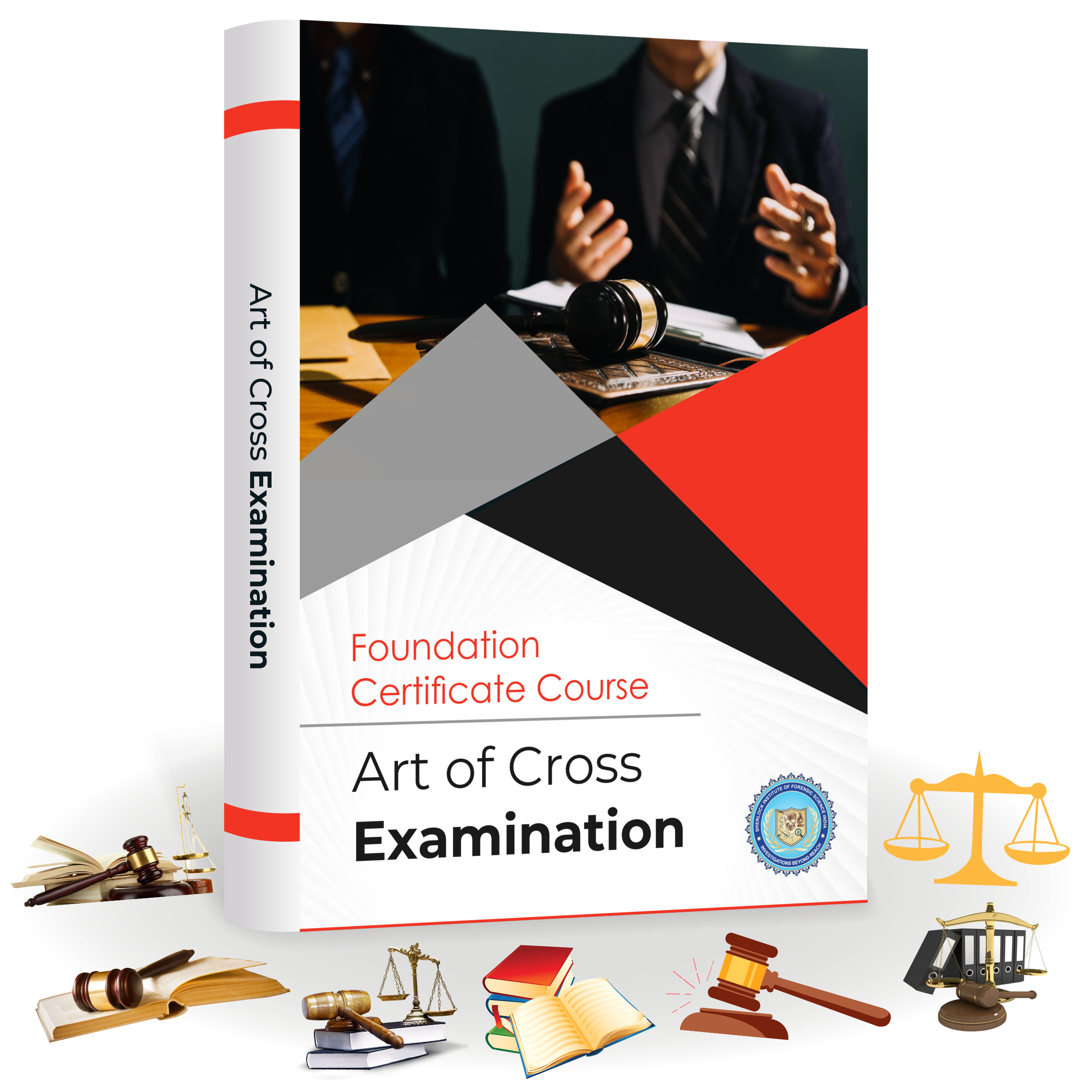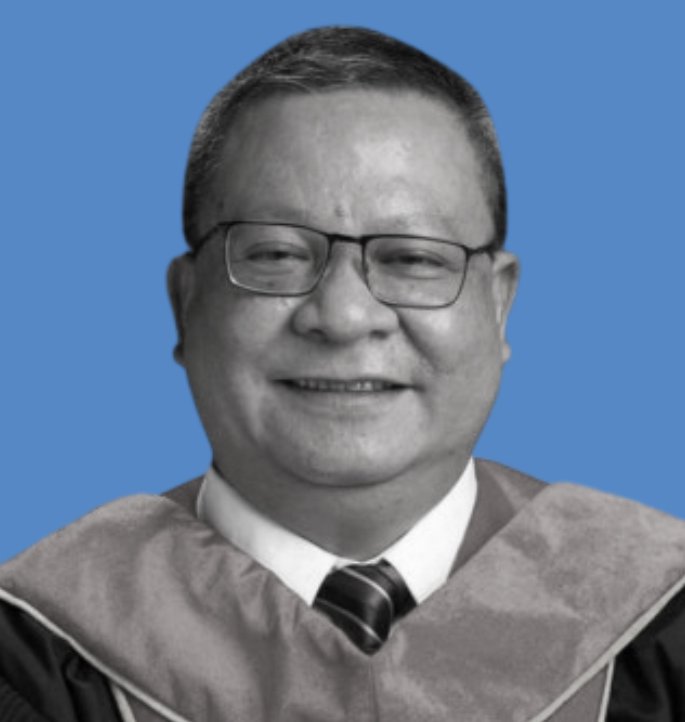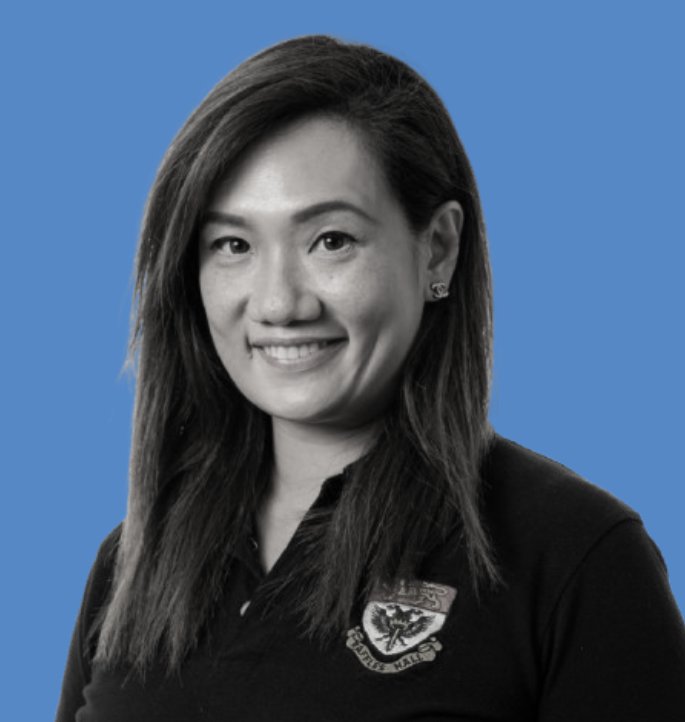This course provided a deep understanding of how to conduct cross-examination in forensic cases. The real-life examples and expert tips were particularly helpful. I feel more confident in presenting forensic reports now.

Certification
Foundation Course Certificate
Mode of Study
100% Online Start now and learn from anywhere
Learning Hours
15 hours of Video Sessions
Learning Medium
English
Learn Forensic at Your Own Pace, Master at Your Own Time!
Unlock Your Potential with Self-Paced Learning!
Learn Anytime, Anywhere
No schedules, no pressure! Study at your convenience
Go at Your Own Speed
Master concepts without rushing or slowing down
Full Access to Course Materials
Revisit lessons whenever you need
Expert-Led Content
Gain industry-relevant skills from top instructors
Perfect for Professionals & Students
Balance learning with your lifestyle
Affordable & Cost-Effective
No travel, no extra expenses, just pure learning!
Earn a Recognized Certification
Boost your resume and career prospects
Join Thousands of Successful Learners Today!
Enroll Now & Take Control of Your Learning Journey!
Cross-examination in the courtroom is a critical skill for effectively challenging forensic evidence and expert testimonies. The online Art of Cross Examination Foundation Certificate Course by the Sherlock Institute of Forensic Science is designed for students and experienced individuals alike who wish to develop their skills in questioning forensic experts and analyzing forensic reports to ensure justice is served.
This is a pre-recorded certified course and is taught by skilled forensic professionals having vast experience in working as cross-examiners. A few of the topics you will learn include the techniques of effective cross-examination, how to question forensic experts, how to critically evaluate forensic reports, the rules of evidence, identifying weaknesses in forensic reports, strategies for challenging expert testimony, presenting contradictory evidence in court, the legal frameworks around forensic evidence, and ways to handle complex forensic reports in legal proceedings.
This certificate course covering numerous real-life case studies will give you intensive exposure to courtroom scenarios involving cross-examination and forensic report evaluation. This course is ideal for those pursuing careers in law, forensic consulting, or legal investigations, as it will help you build the skills needed to challenge forensic evidence in the courtroom effectively. Join us to master the art of cross-examination and strengthen your legal expertise in forensic cases.
Become Proficient to Answer:
- What is the importance of cross-examination in presenting forensic evidence?
- What process do forensic experts follow to prepare for testimony during court proceedings?
- What strategies are used to defend forensic reports during cross-examination?
- How to handle tricky questions without entirely losing your grace on the witness stand?
- What are the major methods for analyzing and improving the presentation of complex forensic findings?
- How can forensic evidence withstand scrutiny from opposing counsel?
- What role do clarity and precision play in presenting forensic reports?
- How can forensic experts counter inconsistencies or gaps in any evidence?
- What are the responsibilities of forensic experts during a cross-examination in court?
- How can proper communication enhance the value of forensic testimony?
- How to make technical forensic data easily understood by the judge and jury?
- How does a forensic expert stay calm and composed during intense questioning in court?
Learning Outcomes:
Role of Cross-Examination in Forensic Reporting: You will learn the importance of cross-examination in legal proceedings, particularly for forensic experts.
Presentation and Defence of Forensic Reports: You will develop skills in presenting your forensic findings clearly and confidently during cross-examination in court.
Handling Challenging Questions: You will learn techniques to respond effectively to challenging or misleading questions as an expert witness.
Legal and Ethical Aspects of Testimony: You will understand the legal and ethical responsibilities of presenting forensic evidence in a court of law.
Effective Communication Skills for Courtroom Testimony: You will acquire skills to communicate complex forensic concepts in a way that are easily understandable to judges, jurors, and attorneys.
Course Details:
Fee | National: 1770 INR (1500 INR + 18% GST) International: 50 USD |
Duration | 1 Month |
Eligibility | 12th Passed |
Session Timing | Learn at your own Pace |
Payment Details:
International Student : PayPal: forensicdocument@gmail.com
Account Details for National Student
Bank Name - ICICI BANK
Acc. Name - SIFS INDIA PVT. LTD.
Account No. - 663505500086
Type - Current
IFSC Code - ICIC0000160
Address - ICICI Bank, H-4, Model Town -III, New Delhi - 110009













